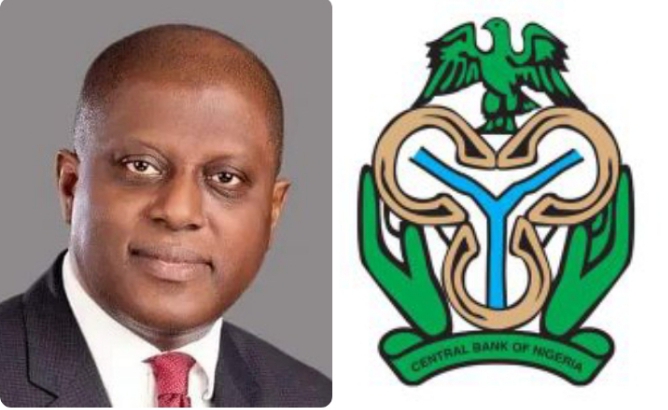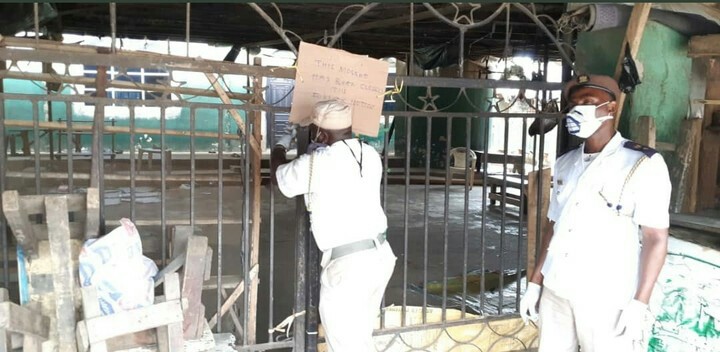Business
Naira Will Not Regain Its Value In 2024 – Experts Predict

Those waiting for the naira, Nigeria’s embattled currency, to regain its value in the new year 2024 against the dollar may have to wait for a long time as it has been stated that the downward momentum will continue.
With the naira touching a low of N1248 at the black market, it was almost N1000 at the official market before it sold for N845 on Friday, the hope of a rebound appears very slim, according to analysts.
Though, the Central Bank of Nigeria (CBN) has made moves to defend the naira as it intervened by selling the dollar in the foreign exchange market, the efforts have not yielded the desired results.
CBN governor, Olayemi Cardoso, has said he would allow market forces to determine exchange rates while setting clear, transparent, and harmonised rules governing market operations.
“If the CBN’s promised measures materialise and (President Bola) Tinubu’s government enacts structural changes to increase oil production or to drive foreign investment, there is plenty of opportunity for the naira to lift from its record lows”.
Nigeria’s foreign exchange reserves dipped to a six-year low of $32.87 billion at the end of December, CBN data have shown.
Nigeria’s dollar reserve in December dwindled to a level last seen in September 2017, when it stood at $32.16 billion.
A backlog of unsettled forwards, undelivered promises of dollar inflows and a two-decade peak in inflation have translated into a tumultuous year for the naira, which has lost over 50 percent of its value to become the third worst-performing global currency in 2023, said Kyle Chapman, FX markets analyst at London-based Ballinger & Co.
This prompted the CBN to run down its foreign exchange reserves, which peaked at $47.63 billion in June 2018, to defend the naira.
“The naira’s downwards momentum is likely to continue through much of 2024, and its ultimate trajectory will depend on whether the CBN’s rhetoric transforms into concrete policy moves that drive up the flow of U.S dollars into Nigeria and shore up trust in the official market,” Chapman said.
Though, a quick fix is unlikely, and further depreciation will come to counteract supply and demand imbalances, analysts said, believing that the downward momentum can be arrested if the Federal Government changes its methods.
Johnson Chukwu, an economist and Managing Director of Cowry Investment, said the current variables do not support the appreciation of the naira in 2024.
He said, “One of the variables that will lead to the appreciation of the naira in 2024 is if we have an improvement in oil production and that improvement is sustained.
“If you look at the figures in November, you will realise that crude oil production dropped from 1.35mbpd in November to 1.25mbpd in December. It was 1.4mbpd in October.
“Beyond that, we have not gotten to a period where we will have a sustainable increase in our crude oil production for the following reasons”.
He added that there have not been any major investments in the on-stream sector in exploration and production as many of the oil majors have exited the country and sold up their on-shore and shallow up-shore assets to Nigerian investors.
“The Nigerian investors who acquired these assets do not have the financial capacity to go into huge investments and accessing credit from offshore lenders for investment in Nigerian oil and gas is going to be tough because of breaches of crude production pipelines. So, we are not likely going to see any material improvement in crude production”, Chukwu noted.
The other factor, he said, is if there is a consistent flow in capital importation.
“As you may know in the past three quarters, capital importations have been declining, in the first quarter of 2023, capital importation was $1.130 billion, the second quarter was $1.030 billion, while in the third quarter, it was about $660 million.
“That is not likely going to change. Unless we achieve foreign exchange liquidity and stability in the exchange rate. And without consistent exports, we are not going to achieve liquidity in foreign exchange or stability in the exchange rate”.
In his contribution, foremost economist, Dr. Ayo Teriba, said Nigeria’s economic theory should not be based on prediction.
Ha said, “Nobody can tell you that this is what is going to happen to the naira in 2024.
“We have seen a year of turbulence in which the central variable that is the source of the turbulence is the exchange rate of the naira. It was foreseeable, it has been an open secret all along since 2015 when the oil commodity collapsed. We have been through two recessions, we got into these recessions and we experienced massive devaluation.
“We have had massive devaluation this year without an official recession. And the devaluation would never have occurred if Nigeria had adequate level of foreign reserves. The dollar had moved from N160 in 2015 to N1233 today because we lacked an anchor for the exchange rate. The only reliable anchor is the reserves.
“If you don’t have foreign exchange adequacy, your currency will be volatile. It is not about curtailing demand, it is about finding the forex to shore up reserves”.
He added that since 2016, no country can boast that its exports have been growing. It is futile to expect more forex from export.
“The world is no more getting forex from export. Global exports have been at the horizontal line since 2016. It could rise and then drop. Export-led growth ended about a decade ago.
“The new fuel that is powering world growth is FDI. It was $20 trillion in 2010. It became $40 trillion in 2020 and it will be $80 trillion by 2027.
“So, it is gradually doubling. So, people are not buying goods from one another, they are investing in one and another.
“The only door that is open to Nigeria to stabilise forex is to get foreign direct investments (FDIs). And you can see how eager investors were from the impressions we have from Indian investors, UEA, Saudi Arabia, Germany and France. They are all keen in investing in Nigeria. Nigeria is the seventh largest economy in the world”.
He, however, stressed that the obstacle in FDI is not the investors but in ourselves.
The other important avenue, according to Teriba, is the diaspora remittances.
“We were fourth in the world before but Egypt has taken over from in the first five as at 2022”.
India leads the pack with $100 billion, followed by Mexico with $60 billion, China is third with $51 billion, Philippine is $38 billion, while Egypt at $32 billion is fifth.
Others are Pakistan at $29 billion, France at $28 billion, Bangladesh is $20 billion,
Nigeria, $20.945 billion, with Vietnam, $19 billion.
He added that the appreciation of the naira is going to be determined by the amount of FDIs and the Diaspora remittance we have. This will greatly boost our foreign reserves. If we have a reserve of $60 billion, the dollar may be around N200.
“There is no need to peg the exchange rate at N750, we can do N200 to a dollar if our reserves are $60 billion or $80 billion”, he noted.
-

 Celebrities3 days ago
Celebrities3 days agoOriyomi Hamzat hospitalised after Ibadan stamdpede
-

 Metro/Crime5 days ago
Metro/Crime5 days agoNigerian varsity lecturer assassinated
-

 News3 days ago
News3 days agoOoni’s Ex-Wife Arrested Over Alleged Death of 35 Children In Ibadan
-

 News3 days ago
News3 days agoOoni breaks silence over Ibadan stamdpede, sends message to party involved
-

 News5 days ago
News5 days agoState Govt seals churches, other establishments
-

 Politics5 days ago
Politics5 days agoBola Tinubu Approves Eight New Appointments (Full List)
-

 Osun News1 day ago
Osun News1 day agoOsogbo agog as Osun former Deputy Gov, Titi Tomori-ponle launches TTP Foundation
-

 Politics2 days ago
Politics2 days agoCourt Sacks APC State Chairman





